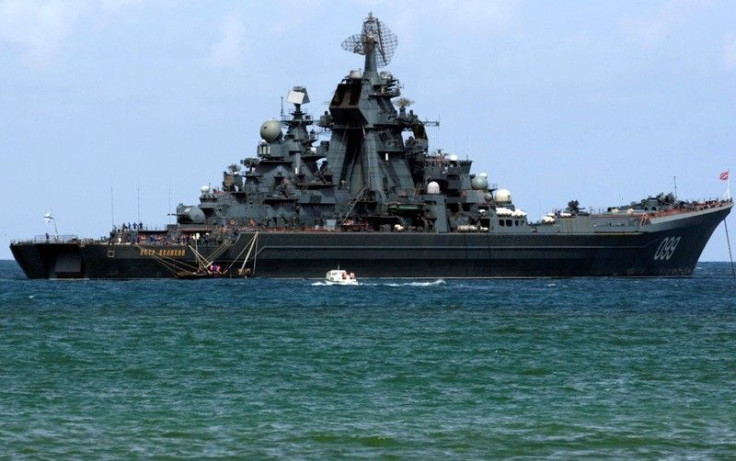Russia And U.S. Nuclear Weapons Rivalry Feared; Russian Attack Robots Prepared To Protect Ballistic Missiles

The growing tension between Russia and the United States over cruise missiles and the daring patrols of Russian nuclear submarines is threatening to bring back the arms rivalry between two of the world's most dominant nuclear forces. The U.S. has warned it will take action in retaliation for the new cruise missile Russia had recently developed.
According to the Guardian, the U.S. had accused Russia of violating one of the key arms treaties in the Cold War. Washington said Moscow had raised the possibility of redeploying its cruise missiles in Europe after 23 years.
On Dec. 26, the U.S. military had launched the first two experimental "blimps" over Washington. Previous reports said that the system, known as JLENS, was designed to detect incoming cruise missiles. Although the North American Aerospace Command did not indicate the reason for the system's deployment, it came after Norad commander Gen. Charles Jacoby had admitted that the Pentagon was dealing with challenges in countering cruise missiles. He referred to the specific threat posed by Russia's attack submarines.
The Russian submarines have been reportedly venturing across the Atlantic carrying nuclear-capable cruise missiles as a routine. With Moscow's aggressive stance and the expiry of treaty restrictions, political analysts have speculated about the contents of the missiles and the possibility of them carrying nuclear warheads.
In 2014, the Federation of American Scientists has noted that the number of strategic nuclear warheads deployed by Russia and the U.S. have increased with both nations spending billions of dollars every year to upgrade their military arsenals. Amid the Ukraine conflict and Russia's sinking economy, Russian President Vladimir Putin is putting more emphasis on his country's nuclear weapons as symbols of great influence. He has earlier warned other countries in a speech last summer that they should not "mess" with Russia.
Meanwhile, Russia's attack robots are being prepared for testing in the Astrakhan region before they are deployed to the country's Strategic Missile Forces. The Moscow Times reported that the trials will focus on the exploration of mobile and stationary robotic systems including technology responsible for signaling and stealth.
Major Dmitry Andreyev from the Defence Ministry's Strategic Missile Forces declared that the preparation for the attack robot trials is on its final stage. The testing is part of Russia's plan to deploy robots to protect its intercontinental ballistic missile launch sites by 2020. Andreyev had described the robots of having a remote-controlled firing system.
Contact email: r.su@ibtimes.com.au.




















